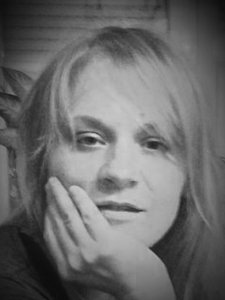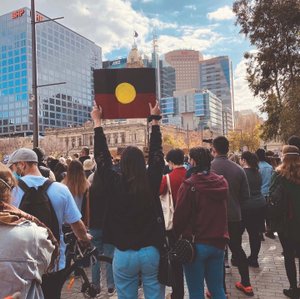Institute
The Institute of Fine Arts (IBK) is the center for artistic education, practice, and research of the Academy of Fine Arts Vienna. In the most varied practices of the arts, the IBK reflects the diversity of the current and international standards of contemporary art and plays a decisive role in shaping them. The Institute represents a field of teaching, learning, promotion, and research in its own right, offering a comprehensive artistic education.
Throughout their studies at the IBK, students are provided support and guidance from distinguished artists as well as from the academic and artistic staff. The individual studios ensure focused education against the background of a critical examination of art as well as its individual genres.
Specialized workshops and laboratories and a wide variety of interdisciplinary practical and theoretical courses, together with the Central Artistic Subject (ZKF) of the individual studios, provide instruction in the fine arts that is oriented on the forms of contemporary art.
The aim is to impart to students artistic competency that is broadly conceived, yet specifically oriented in terms of craft and content. Further teaching objectives involve relating to political, societal and social discourses and facts and actively engaging in them. Students receive support for developing and expanding their artistic potential, working autonomously, and consolidating their sovereignty as contemporary artists.
Since starting with the classical disciplines of painting and sculpture, the Institute has been consistently expanding to include time-related media, photography, film, video, performance, sculpture and installations, as well as conceptual art, drawing, and art in public space, so that students now have 18 studios available for their artistic training.
The Central Artistic Subject (ZKF) of the IBK studios is where the students’ teaching and artistic work takes place. This free space is a place for exchanging, experimenting, retreating, and developing joint projects. Artistic research is now established within the Academy and is an enrichment to the curriculum. The Institute supervises the Fine Arts Diploma Program and the PhD-in-Practice program together with the Institute of Art Theory and Cultural Studies (IKW).
The IBK studios are structured according to four categorical prerequisites in artistic creation regarding temporal perspectives (Art and Time), spatial (Art and Space) and pictorial representation (Art and Image), as well as intervention in action-related and structural contexts (Art and Intervention).
Art and Time
Time-based media expand the visual spectrum to include essential perspectives of the present and, in a particular way, reflect contemporary social issues. Through the media of photography, film, video, animation, sound, etc., the analog and digital focus of pictorial representations is critically examined under the aspect of temporality, of sequentiality and unexpectedness, and of narrativity and abstraction. Questions of social dramaturgies, narrative forms, parallel and divergent temporalities are deeply intrinsic to these time-based media and unfold into complex discourses in the respective artistic practices.
Art and Space
Artistic orientation towards space includes sculptural representations as well as opening the textures and strategies of spatial thinking towards a broadly understood and multidimensional (public, private, real, virtual, etc.) social space. Examining and processing concrete materials plays a special role in designing three-dimensional objects. Space is simultaneously relevant in a broader sense: Three-dimensional work thus arises in the disciplinary context of sculpture and installation and confronts social contexts, expectations, and structures.
Art and Image
In an age of digitally intensified pictorial representation, the relevance of painting, drawing and photography as creative expressions of basic cultural and communication techniques becomes even more significant. Examining various image techniques (printing techniques, drawing and painting, digital image media, etc.) is the starting point for critically examining the hyperpresence of images in our society. On this basis, in view of the general patterns of the production and distribution of images, it becomes possible to develop independent images in an emphatic sense.
Art and Intervention
In each case, the impact of art depends on its contact with the various audiences it addresses. In this respect, the social, political, discursive and socio-spatial aspects of art play a central role in the Academy’s self-image – and, in this sense, a social and discursive practice.
The three IBK campuses – Schillerplatz, Atelierhaus, and Kurzbauergasse – offer a variety of options, their own work situations, contemporary and professional equipment. The workshops and laboratories support the students’ individual development and prepare them for autonomy after graduation. The diversity of the workshops and the enhanced teaching by artistic-scientific staff facilitate a broad spectrum of artistic development. The close association with the Institute of Art Theory and Cultural Studies (IKW) as well as cross-institutional cooperation with all the institutes provides a support network for the theoretical and practical coursework.
The IBK’s international orientation is not only evident in its teaching staff – artists anchored in international discourse – but also in its large number of international students and the existence of student projects and graduates in a broad artistic context.
The Institute’s current perspectives for the future are reflected in its consistently further developing visual art that deals with current questions of digital culture as well as implicit confrontations with classical and future materials.
Upcoming Events
-
Opening Lecture Dr. Nina Cvar: From Marx and Engels to Althusser and Jonathan Beller
Opening lecture by Guest professor Dr. Nina Cvar (Ljubljana, Slovenia) in the Studio Art and Intervention/Concept in the Summer Semester 2025. Organized by the Studio Art and Intervention, Concept (Post-conceptual Art Practices), Prof. Marina Grzinic. Supported by the International Office at the Academy of Fine Arts Vienna.
Lecture
Studio Building/ 1. floor, studio south
Fine Arts

-
–
Workshop: Erkundung von Post-Apartheid Leben, Kunst und Kultur
Gastprofessorin Dr. Nomusa Makhubu, Kapstadt, Südafrika
Organisiert in Kollaboration mit Erasmus+ und der Akademie der bildenden Künste. Initiiert vom Studio Art and Intervention, Concept (Post-conceptual Art Practices), Prof. Marina Grzinic, IBK, Akademie der bildenden Künste Wien.Workshop
–
Atelierhaus/ Atelier Süd
Fine Arts

-
From Australia to Austria: Law as an Instrument of Power
Panel discussion with Maria Giannacopoulos (Sydney) and Ümmü-Selime Türe (Vienna), in Cooperation with the Academy of Fine Arts Vienna, IBK, Studio for Arts and Intervention | Concept, Prof. Marina Gržinić.
Panel discussion
Depot – Kunst und Diskussion
Breite Gasse 3
1070 ViennaFine Arts



![Open Days 2022,Exhibition [em]Significant Others[/em], Studio Expanded Pictorial Space-Action/Sculpture/Installation in Public Space, [em]disarmed[/em] by Mael Blau, photo © eSeL.at – Lorenz Seidler Several people wearing FFP2 masks stand in a room with columns and wooden floor. In the foreground you can see an artistic work: 3 stuffed wild cats, 2 leopards a panther lying on the floor in front of feeding bowls in the same position.](https://webportal-live.akbild.ac.at/en/institutes/fine-arts/institute/3esel6875.jpg/@@images/image-1400-1066e8d72c9ea67ed41d453421fa1e9f.jpeg)
![Valerie Habsburg, [em]All over again[/em], 2021, performance A performer sits cross-legged in a room behind a glass wall and tears up photos. The snippets are spread around her, she wears black clothes, her hair is pinned up. The surrounding space is reflected in the glass.](https://webportal-live.akbild.ac.at/en/institutes/fine-arts/institute/4habsburg.jpg/@@images/image-1400-1066e8d72c9ea67ed41d453421fa1e9f.jpeg)
![Alina Szokolova, [em]Dancing plague, exquisite leisure and the incidental choreographer[/em], 2021, photo © Kathrin Hanga Three small paintings hang on a wall, two portraits and a hand with a raised index finger, above them projected two forearms, obviously in a gestural motion sequence. The cross-fades create an orange-red, abstract environment that frames the white cut-out.](https://webportal-live.akbild.ac.at/en/institutes/fine-arts/institute/6sokolova-kopie.jpg/@@images/image-1400-1066e8d72c9ea67ed41d453421fa1e9f.jpeg)
![Melisande-Samantha Seebald, [em]Auf eine Zigarette[/em], filmstill, photo © eSeL.at - Joanna Pianka Black and white image of younger woman smoking cigarette with serious skeptical look. She is sitting in a garden.](https://webportal-live.akbild.ac.at/en/institutes/fine-arts/institute/7seebald.jpg/@@images/image-1400-1066e8d72c9ea67ed41d453421fa1e9f.jpeg)
![Laia Fabre, [em]The Fountain[/em], videostill, 2021 Three performers spit water they drink from plastic bottles into the air. Their upper bodies are naked or wearing purple, non-gender-specific tops.](https://webportal-live.akbild.ac.at/en/institutes/fine-arts/institute/8fabre.jpg/@@images/image-1400-1066e8d72c9ea67ed41d453421fa1e9f.jpeg)
![Hanna Schibel, [em]Die Tage_27.3.21[/em], Mixedmedia, 2021 Huge fabric sculpture that looks like an amoeba-like animal, in light and dark orange colors and small outgrowths.](https://webportal-live.akbild.ac.at/en/institutes/fine-arts/institute/9schibel.jpg/@@images/image-1400-1066e8d72c9ea67ed41d453421fa1e9f.jpeg)